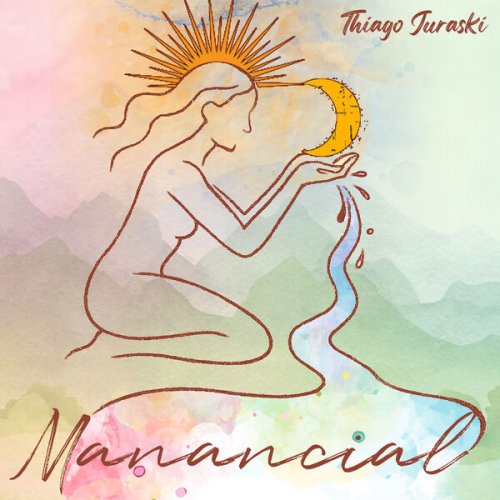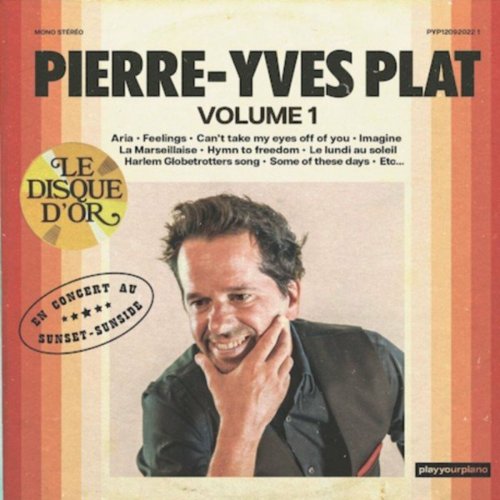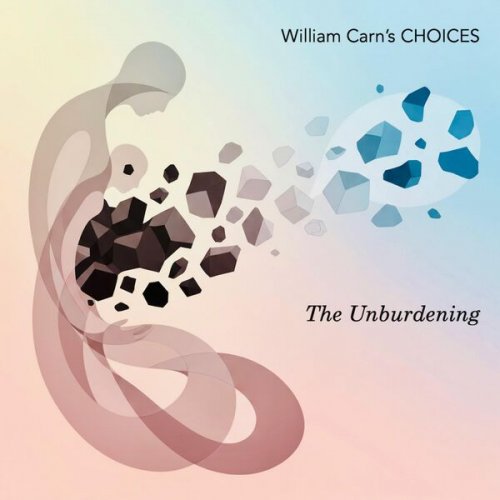Theo Bleckmann / Alicia Olatuja / Dan Tepfer / David Hajdu - The Parsonage (2023) [Hi-Res]
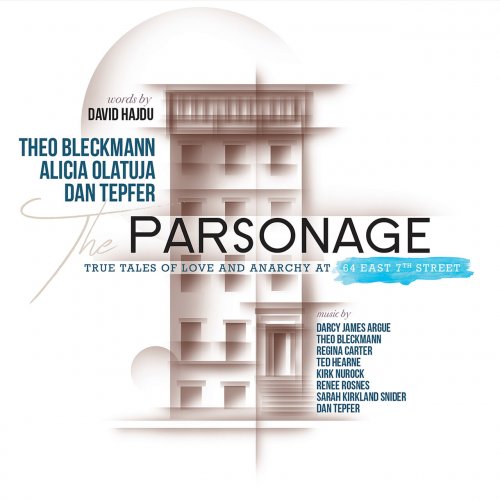
Artist: Theo Bleckmann, Alicia Olatuja, Dan Tepfer, David Hajdu
Title: The Parsonage
Year Of Release: 2023
Label: Sunnyside
Genre: Chamber Jazz, Modern Classical
Quality: FLAC (tracks) / 24bit-96kHz FLAC (tracks)
Total Time: 44:01
Total Size: 180 / 765 MB
WebSite: Album Preview
Tracklist:Title: The Parsonage
Year Of Release: 2023
Label: Sunnyside
Genre: Chamber Jazz, Modern Classical
Quality: FLAC (tracks) / 24bit-96kHz FLAC (tracks)
Total Time: 44:01
Total Size: 180 / 765 MB
WebSite: Album Preview
1. Sailing to the Sunday School Picnic (5:12)
2. Ballad of the Man Who Laughed (4:16)
3. Translation, Two Cigar Butts (5:08)
4. East In the Village (5:45)
5. Living Light (2:54)
6. Lou Reed Was Very Well Read (7:36)
7. Glamour And Standing (6:24)
8. Eighteen Million Six (6:50)
New York is a city of ghosts. An ordinary-looking building on an unexceptional street can harbor the spirits of countless human dramas of past years: family secrets, forgotten news, lost traditions, heroes unsung, artworks unseen….
If every building on every block has stories to tell, one place in particular has a history like no other. The inconspicuous four-story brick townhouse at 64 East 7th Street was at the heart of a long series of dramatic moments in New York's cultural history, from the day of the city's first major disaster through the Beat movement and the punk era to 21st-century gentrification.
The Parsonage gives musical voice to the varied lives of that single building over more than a hundred years. To express the wide variety of tales it holds, The Parsonage was created by a group of eight composers from the worlds of jazz, contemporary classical, and "post-classical" music: Darcy James Argue, Theo Bleckmann, Regina Carter, Ted Hearne, Kirk Nurock, Renee Rosnes, Sarah Kirkland Snider, and Dan Tepfer. The libretto is by the author and lyricist David Hajdu, who conceived the project and oversaw its creation and recording over a period of four years.
Hajdu discovered the full legacy of 64 East 7th Street while researching the archives of applications for historical-district status in Greenwich Village. Startled by the forgotten histories he found, Hajdu began to imagine them as pieces in a song cycle: a hybrid work involving widely varied creators, to serve the hybrid, varied nature of the building's history.
“I'm glad the bizarre history of this building is true, because if I invented it in a work of fiction, people would say, 'Oh, that's ridiculous -- all that could never happen in a single location,’” said Hajdu, whose previously published a novel about the downtown New York art world.
Hajdu has known the Village since his undergraduate years at New York University. His early interest in writing had led him to the Book ‘N Things shop in the East Village, which happened to be housed in 64 East 7th Street. Later, Hajdu would find success as a highly regarded author and professor at Columbia University. Over the past decade, he has emerged as a lyricist of note, working primarily with the pianist and composer Renee Rosnes in a partnership the critic Stephen Holden has described as "an unexpected happy marriage of Stephen Sondheim and Joni Mitchell for the 21st century."
After completing lyrics to seven of the cycle's songs, Hajdu reached out to a group of composers known for working in a range of styles. One of the first to sign on as both composer and singer was the genre-defying vocalist Theo Bleckmann, who brought in the highly versatile singer Alicia Olatuja and recommended the composer Kirk Nurock. All the composers got into the spirit of the project, with many asking for the full history of the building along with pictures and historical documents to help them conjure the eras of the songs. The adventurous pianist and composer Dan Tepfer was brought in to lead the instrumental ensemble of cellist Erik Friedlander, bass clarinetist Carl Maraghi, and bassist Sean Smith.
The building at 64 East 7th Street was built in 1889 as the parsonage of St. Mark’s Church and the home of Reverend George Haas and his family. The first piece in the cycle, “Sailing To The Sunday School Picnic” was composed by violinist Regina Carter and tells the disastrous story of the steamboat General Slocum, chartered by St. Mark’s Church in 1904. Over 1,000 people died when the Slocum caught fire and sank on the way to Long Island. Carter steeped herself in the study of ragtime and parlor music to capture the music of the period. Rosnes’s “Ballad of The Man Who Laughed” considers the story of Communist journalist Alexander Brailovsky, who was arrested at 64 East Seventh after he was seen laughing at the site of a bomb explosion on Wall Street in September 1920. Composer Ted Hearne utilizes digital samples of Allen Ginsburg and The Fugs on his “Translation, Two Cigar Butt.” With lyrics constructed as a collage from snippets of poetry once read at 64 East 7th Street, the piece evokes the heady, eclectic bohemianism of the building's Beat-era coffeehouse, Les Deux Mégots.
Later in the 1960s, 64 East 7th Street housed the The Paradox, a macrobiotic restaurant that helped birth “happenings” and performance art through the innovations of one of its waitresses, Yoko Ono. Kirk Nurock wrote “East in the Village” to celebrate that time period and the eastern philosophies that inspired the experimental generation of performers who were nurtured by it. When The Paradox closed, the space was taken over by the Rainbow Family of Living Light, a commune whose free spirits left the space in ruin. “Living Light” reflects this tumultuous time with a free improvisation from Tepfer.
Bleckmann chose to compose the music for “Lou Reed Was Very Well Read,” the piece celebrating the bookstore that first introduced Hajdu to 64 East 7th Street and that was a regular haunt of poet Marianne Moore and proto-punk Lou Reed. In the 1980s, the building found itself as a couture consignment shop, as much of the neighborhood became an elite space for a new fashion-forward generation. Darcy James Argue wrote the music to “Glamour and Standing” with an insistent dance beat, to echo the time. The final piece, “Eighteen Million Six,” was composed after the rest of the cycle was completed by the celebrated classical composer Sarah Kirkland Snider. With lyrics adapted from the real-estate listing for the building, the piece captures the contemporary reality of 64 East Seventh, as the building was gutted and refashioned into a luxury residence, ignoring over a century of history.
With The Parsonage, eight composers, two singers, and a librettist collaborated to salvage and repurpose the forgotten history of an outwardly unexceptional but truly extraordinary place.
Theo Bleckmann - voice
Alicia Olatuja - voice
Dan Tepfer - piano
Erik Friedlander - cello
Carl Maraghi - bass clarinet
Sean Smith - bass
David Hajdu - words
If every building on every block has stories to tell, one place in particular has a history like no other. The inconspicuous four-story brick townhouse at 64 East 7th Street was at the heart of a long series of dramatic moments in New York's cultural history, from the day of the city's first major disaster through the Beat movement and the punk era to 21st-century gentrification.
The Parsonage gives musical voice to the varied lives of that single building over more than a hundred years. To express the wide variety of tales it holds, The Parsonage was created by a group of eight composers from the worlds of jazz, contemporary classical, and "post-classical" music: Darcy James Argue, Theo Bleckmann, Regina Carter, Ted Hearne, Kirk Nurock, Renee Rosnes, Sarah Kirkland Snider, and Dan Tepfer. The libretto is by the author and lyricist David Hajdu, who conceived the project and oversaw its creation and recording over a period of four years.
Hajdu discovered the full legacy of 64 East 7th Street while researching the archives of applications for historical-district status in Greenwich Village. Startled by the forgotten histories he found, Hajdu began to imagine them as pieces in a song cycle: a hybrid work involving widely varied creators, to serve the hybrid, varied nature of the building's history.
“I'm glad the bizarre history of this building is true, because if I invented it in a work of fiction, people would say, 'Oh, that's ridiculous -- all that could never happen in a single location,’” said Hajdu, whose previously published a novel about the downtown New York art world.
Hajdu has known the Village since his undergraduate years at New York University. His early interest in writing had led him to the Book ‘N Things shop in the East Village, which happened to be housed in 64 East 7th Street. Later, Hajdu would find success as a highly regarded author and professor at Columbia University. Over the past decade, he has emerged as a lyricist of note, working primarily with the pianist and composer Renee Rosnes in a partnership the critic Stephen Holden has described as "an unexpected happy marriage of Stephen Sondheim and Joni Mitchell for the 21st century."
After completing lyrics to seven of the cycle's songs, Hajdu reached out to a group of composers known for working in a range of styles. One of the first to sign on as both composer and singer was the genre-defying vocalist Theo Bleckmann, who brought in the highly versatile singer Alicia Olatuja and recommended the composer Kirk Nurock. All the composers got into the spirit of the project, with many asking for the full history of the building along with pictures and historical documents to help them conjure the eras of the songs. The adventurous pianist and composer Dan Tepfer was brought in to lead the instrumental ensemble of cellist Erik Friedlander, bass clarinetist Carl Maraghi, and bassist Sean Smith.
The building at 64 East 7th Street was built in 1889 as the parsonage of St. Mark’s Church and the home of Reverend George Haas and his family. The first piece in the cycle, “Sailing To The Sunday School Picnic” was composed by violinist Regina Carter and tells the disastrous story of the steamboat General Slocum, chartered by St. Mark’s Church in 1904. Over 1,000 people died when the Slocum caught fire and sank on the way to Long Island. Carter steeped herself in the study of ragtime and parlor music to capture the music of the period. Rosnes’s “Ballad of The Man Who Laughed” considers the story of Communist journalist Alexander Brailovsky, who was arrested at 64 East Seventh after he was seen laughing at the site of a bomb explosion on Wall Street in September 1920. Composer Ted Hearne utilizes digital samples of Allen Ginsburg and The Fugs on his “Translation, Two Cigar Butt.” With lyrics constructed as a collage from snippets of poetry once read at 64 East 7th Street, the piece evokes the heady, eclectic bohemianism of the building's Beat-era coffeehouse, Les Deux Mégots.
Later in the 1960s, 64 East 7th Street housed the The Paradox, a macrobiotic restaurant that helped birth “happenings” and performance art through the innovations of one of its waitresses, Yoko Ono. Kirk Nurock wrote “East in the Village” to celebrate that time period and the eastern philosophies that inspired the experimental generation of performers who were nurtured by it. When The Paradox closed, the space was taken over by the Rainbow Family of Living Light, a commune whose free spirits left the space in ruin. “Living Light” reflects this tumultuous time with a free improvisation from Tepfer.
Bleckmann chose to compose the music for “Lou Reed Was Very Well Read,” the piece celebrating the bookstore that first introduced Hajdu to 64 East 7th Street and that was a regular haunt of poet Marianne Moore and proto-punk Lou Reed. In the 1980s, the building found itself as a couture consignment shop, as much of the neighborhood became an elite space for a new fashion-forward generation. Darcy James Argue wrote the music to “Glamour and Standing” with an insistent dance beat, to echo the time. The final piece, “Eighteen Million Six,” was composed after the rest of the cycle was completed by the celebrated classical composer Sarah Kirkland Snider. With lyrics adapted from the real-estate listing for the building, the piece captures the contemporary reality of 64 East Seventh, as the building was gutted and refashioned into a luxury residence, ignoring over a century of history.
With The Parsonage, eight composers, two singers, and a librettist collaborated to salvage and repurpose the forgotten history of an outwardly unexceptional but truly extraordinary place.
Theo Bleckmann - voice
Alicia Olatuja - voice
Dan Tepfer - piano
Erik Friedlander - cello
Carl Maraghi - bass clarinet
Sean Smith - bass
David Hajdu - words
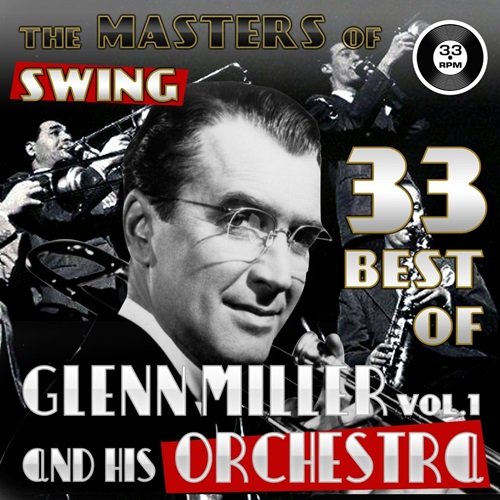
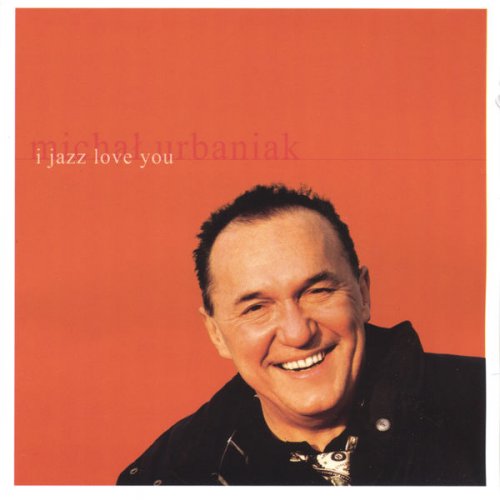
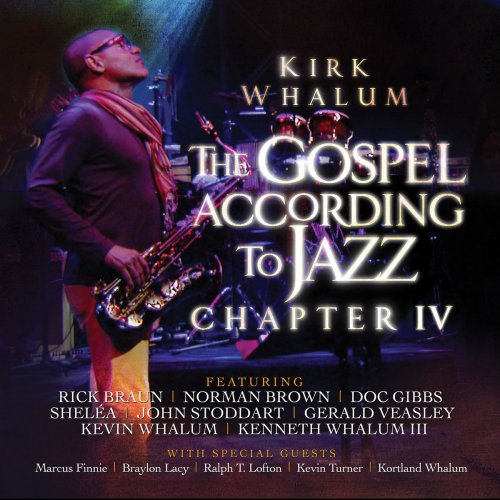
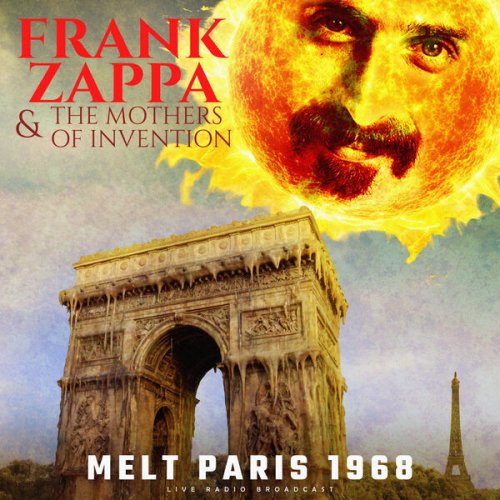
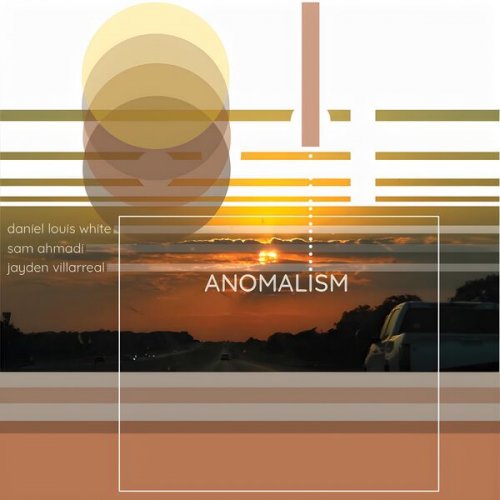
![Black Flower - Abyssinia Afterlife (2014) [Hi-Res] Black Flower - Abyssinia Afterlife (2014) [Hi-Res]](https://img.israbox.com/img/2025-12/21/anj3jk2va3pc3i9y3pv0m7zde.jpg)
